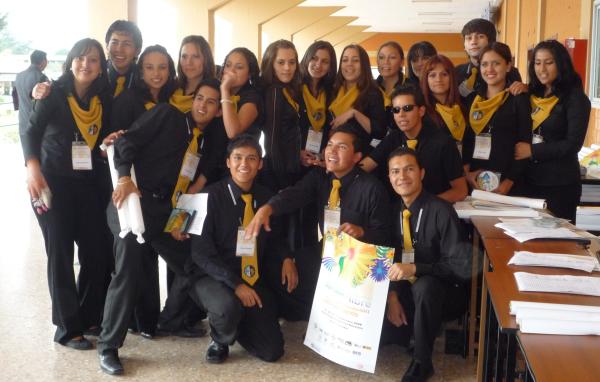Perspectives of Free Software as a Social Movement, 11 years later
Some worries and suggestions from 2009, still (sadly) valid today.

Exactly eleven years ago I gave a talk in Quito about “Perspectives of Free Software as a Social Movement”. Let’s see at how much the main points of that talk in 2008 are still valid today (of it is still valid today (full slides here):
Who should care first (about Free Software)
The quality of our lives and our civil rights depend every year more on which software and electronic devices are used around us and on how they are used. Even if we don’t own a computer. Consequently, education in, and support of, this field does NOT belong to computer education: it is civic education!
Role of software licenses
Free Software activists have often been the first to spot problems [created or amplified by software], but this doesn’t mean the solutions start from Free Software. The actual impact of hardware and software digital technologies on civil rights and equal opportunities is a combination of many factors. Quite often, however, the license of the software involved in some “digital rights” problem is either irrelevant or a really secondary issue. Examples include:
- Energy efficiency
- E-voting
- Net Neutrality
- Freedom of speech
- Transparency of Public administrations
Limits of traditional activist approaches
The default attitude and communication strategy [of “orthodox” Free Software advocates] often seem just elitist. For more on this, see (both from 2006):
- Seven Things we’re tired of hearing from software hackers
- A Free Software Manifesto for the rest of us
Focusing on software is often wrong, or at least less effective, both technically and strategically:
- Software programs are pens, file formats are alphabets: if the alphabet is free and standardized, who really cares if the pen is patented? Do pen manufacturers have the same lock-in power of software office suites developers?
Who makes the most damage?
Who limits the freedom of other people the most, that is who damages society the most?
- a Windows user who produces and exchange files in the OpenDocument format with MS Office, or…
- A Gnu/Linux / OpenOffice user who produces and exchange files in .doc, .ppt or .xls closed formats?
From Free Software activism to a mass Social Movement
Real, positive change in all social spheres impacted by software will only happen if there is direct involvement of a number of non-technical citizens orders of magnitude bigger than the current population of Free Software, Free Culture and Digital Rights activists.
Redefining priorities
Making more people use Free Software, or making all existing software Free as in Freedom, is not the most urgent priority: instead, focus on making people support Free Software, rather than using it personally. And make people always use and demand Free as in Freedom Formats. Above all, always start from what people really need and care about.
Technology is legislation, and the role of Catholics
Caring about (digital) technology means caring for a better world. This is why Free Software and digital rights movements must become a mass social movement as soon as possible
To make this happen it is necessary to change language and priorities (which does not mean renegading the GNU manifesto or giving up the four freedoms: it’s just inserting them in the big picture). And Catholics have even more reasons than others for playing an active role in this field, as a service to the whole society!
That was 2008. What about today?
Those were my concerns and suggestions. Today, too little has changed, as you can see comparing free software to climate change, or what others say is still missing from the Free/Open Source Software movement.
Who writes this, why, and how to help
I am Marco Fioretti, tech writer and aspiring polymath doing human-digital research and popularization.
I do it because YOUR civil rights and the quality of YOUR life depend every year more on how software is used AROUND you.
To this end, I have already shared more than a million words on this blog, without any paywall or user tracking, and am sharing the next million through a newsletter, also without any paywall.
The more direct support I get, the more I can continue to inform for free parents, teachers, decision makers, and everybody else who should know more stuff like this. You can support me with paid subscriptions to my newsletter, donations via PayPal (mfioretti@nexaima.net) or LiberaPay, or in any of the other ways listed here.THANKS for your support!